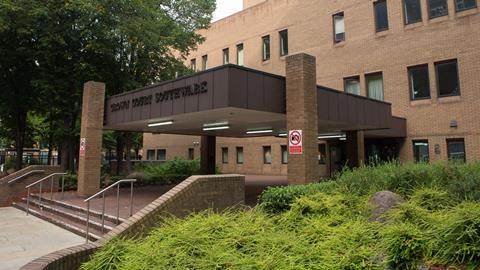A woman found guilty of involvement in money laundering was caught out by ‘know your client’ questions when she attempted to buy multi-million-pound properties in London, a court has heard.
Jian Wen, 42, a former Chinese takeaway worker, was convicted at Southwark Crown Court (pictured) for her part in converting ‘significant amounts’ of bitcoin into cash and other assets on behalf of another.
Police seized bitcoin wallets from Wen with an initial estimated value in excess of £2bn.
Between autumn 2017 and late 2018, Wen attempted to purchase properties in London valued at £4.5m, £23.5m and £12.5m. Difficulties in converting sufficient bitcoin into sterling and ‘know your customer’ questions asked of her under anti-money laundering regulations hampered the purchases, the Crown Prosecution Service said.
When she was challenged about the source of the proposed funding, Wen claimed it came from legitimate activities including bitcoin mining. Her claims were not accepted by those she instructed to assist with the sale.
However in October and November 2019, she purchased two properties in Dubai for a total of more than £500,000. She also brought jewellery worth tens of thousands of pounds and travelled ‘extensively’.
Wen said she had been gifted £15m worth of Bitcoin by her employer. She denied knowing any of the bitcoin was derived from criminality.
Andrew Penhale, chief crown prosecutor, said: ‘Bitcoin and other cryptocurrencies are increasingly being used by organised criminals to disguise and transfer assets, so that fraudsters may enjoy the benefits of their criminal conduct. This case, involving the largest cryptocurrency seizure in the UK, illustrates the scale of criminal proceeds available to those fraudsters.
‘Although the original fraudster remains at large, the Metropolitan Police and CPS have successfully secured a money laundering conviction against Jian Wen, an individual employed to launder criminal proceeds. The CPS will now work to ensure, through criminal confiscation and civil proceedings, that the criminal assets remain beyond the fraudsters’ reach.’



























